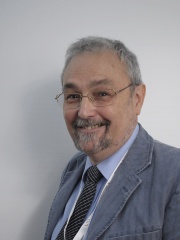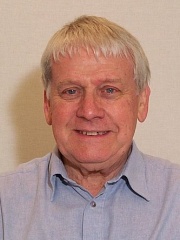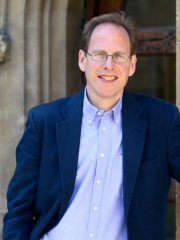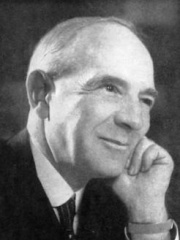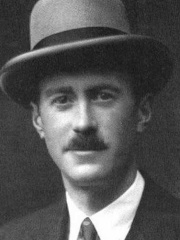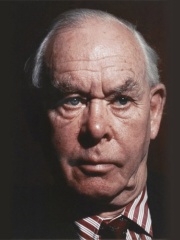
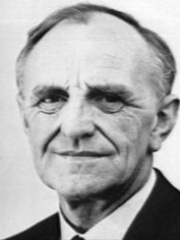
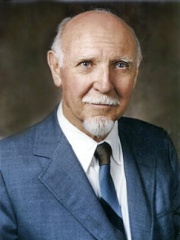
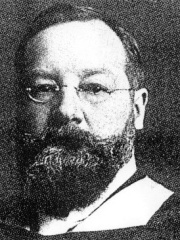
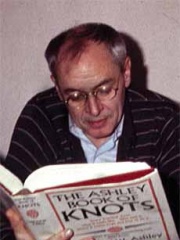
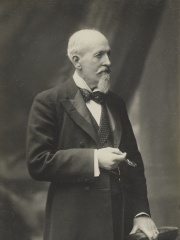
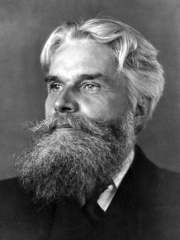
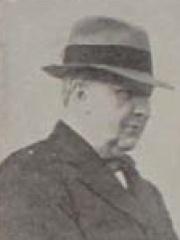
The Most Famous
PSYCHOLOGISTS from United Kingdom
This page contains a list of the greatest British Psychologists. The pantheon dataset contains 235 Psychologists, 20 of which were born in United Kingdom. This makes United Kingdom the birth place of the 3rd most number of Psychologists behind United States, and Germany.
Top 10
The following people are considered by Pantheon to be the top 10 most legendary British Psychologists of all time. This list of famous British Psychologists is sorted by HPI (Historical Popularity Index), a metric that aggregates information on a biography's online popularity. Visit the rankings page to view the entire list of British Psychologists.

1. John Bowlby (1907 - 1990)
With an HPI of 71.33, John Bowlby is the most famous British Psychologist. His biography has been translated into 31 different languages on wikipedia.
Edward John Mostyn Bowlby (; 26 February 1907 – 2 September 1990) was a British psychiatrist and psychoanalyst, notable for his interest in child development and for his pioneering work in attachment theory. Bowlby was inspired by Melanie Klein during his psychoanalytic training. Melanie Klein was his supervisor; however, they had different views about the role of the mother in the treatment of a three-year-old boy. Specifically and importantly, Klein stressed the role of the child's fantasies about his mother, but Bowlby emphasised the actual history of the relationship. A Review of General Psychology survey, published in 2002, ranked Bowlby as the 49th most cited psychologist of the 20th century.

2. Donald Winnicott (1896 - 1971)
With an HPI of 70.89, Donald Winnicott is the 2nd most famous British Psychologist. His biography has been translated into 27 different languages.
Donald Woods Winnicott (7 April 1896 – 25 January 1971) was an English paediatrician and psychoanalyst who was especially influential in the field of object relations theory and developmental psychology. He was a leading member of the British Independent Group of the British Psychoanalytical Society, President of the British Psychoanalytical Society twice (1956–1959 and 1965–1968), and a close associate of British writer and psychoanalyst Marion Milner. Winnicott is best known for his ideas on the true self and false self, the "good enough" parent, and he and his second wife, Clare, arguably his chief professional collaborator, worked with the notion of the transitional object. He wrote several books, including Playing and Reality, and more than 200 papers.

3. Raymond Cattell (1905 - 1998)
With an HPI of 69.39, Raymond Cattell is the 3rd most famous British Psychologist. His biography has been translated into 38 different languages.
Raymond Bernard Cattell (20 March 1905 – 2 February 1998) was a British-American psychologist, known for his psychometric research into intrapersonal psychological structure. His work also explored the basic dimensions of personality and temperament, the range of cognitive abilities, the dynamic dimensions of motivation and emotion, the clinical dimensions of abnormal personality, patterns of group syntality and social behavior, applications of personality research to psychotherapy and learning theory, predictors of creativity and achievement, and many multivariate research methods including the refinement of factor analytic methods for exploring and measuring these domains. Cattell authored, co-authored, or edited almost 60 scholarly books, more than 500 research articles, and over 30 standardized psychometric tests, questionnaires, and rating scales. According to a widely cited ranking, Cattell was the 16th most eminent, 7th most cited in the scientific journal literature, and among the most productive psychologists of the 20th century. Cattell was an early proponent of using factor analytic methods instead of what he called "subjective verbal theorizing" to explore empirically the basic dimensions of personality, motivation, and cognitive abilities. One of the results of Cattell's application of factor analysis was his discovery of 16 separate primary trait factors within the normal personality sphere (based on the trait lexicon). He called these factors "source traits". This theory of personality factors and the self-report instrument used to measure them are known respectively as the 16 personality factor model and the 16PF Questionnaire (16PF). Cattell also undertook a series of empirical studies into the basic dimensions of other psychological domains: intelligence, motivation, career assessment and vocational interests. Cattell theorized the existence of fluid and crystallized intelligence to explain human cognitive ability, investigated changes in Gf and Gc over the lifespan, and constructed the Culture Fair Intelligence Test to minimize the bias of written language and cultural background in intelligence testing.

4. Edward B. Titchener (1867 - 1927)
With an HPI of 67.65, Edward B. Titchener is the 4th most famous British Psychologist. His biography has been translated into 33 different languages.
Edward Bradford Titchener (11 January 1867 – 3 August 1927) was an English psychologist who studied under Wilhelm Wundt for several years. Titchener is best known for creating his version of psychology that described the structure of the mind: structuralism. After becoming a professor at Cornell University, he created the largest doctoral program at that time in the United States. His first graduate student, Margaret Floy Washburn, became the first woman to be granted a PhD in psychology (1894).
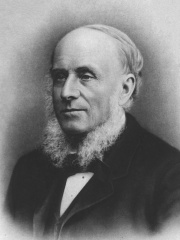
5. Alexander Bain (1818 - 1903)
With an HPI of 67.36, Alexander Bain is the 5th most famous British Psychologist. His biography has been translated into 29 different languages.
Alexander Bain (11 June 1818 – 18 September 1903) was a Scottish philosopher and educationalist in the British school of empiricism and a prominent and innovative figure in the fields of psychology, linguistics, logic, moral philosophy and education reform. He founded Mind, the first ever journal of psychology and analytical philosophy, and was the leading figure in establishing and applying the scientific method to psychology. Bain was the inaugural Regius Chair in Logic and Professor of Logic at the University of Aberdeen, where he also held Professorships in Moral Philosophy and English Literature and was twice elected Lord Rector of the University of Aberdeen.

6. R. D. Laing (1927 - 1989)
With an HPI of 65.89, R. D. Laing is the 6th most famous British Psychologist. His biography has been translated into 46 different languages.
Ronald David Laing (7 October 1927 – 23 August 1989), usually cited as R. D. Laing, was a British psychiatrist who wrote extensively on mental illness, particularly psychosis and schizophrenia. Laing's views on the causes and treatment of psychopathological phenomena were influenced by his study of existential philosophy and ran counter to the chemical and electroshock methods that had become psychiatric orthodoxy. Laing took the expressed feelings of the individual patient or client as valid descriptions of personal experience rather than simply as symptoms of mental illness. Though associated in the public mind with the anti-psychiatry movement, he rejected the label. Laing regarded schizophrenia as the normal psychological adjustment to a dysfunctional social context. Politically, Laing was regarded as a thinker of the New Left. He has been theatrically portrayed by Mike Maran, Alan Cox, Billy Mack and by David Tennant in the 2017 film Mad to Be Normal.

7. Charles Spearman (1863 - 1945)
With an HPI of 65.46, Charles Spearman is the 7th most famous British Psychologist. His biography has been translated into 33 different languages.
Charles Edward Spearman, FRS (10 September 1863 – 17 September 1945) was an English psychologist known for work in statistics, as a pioneer of factor analysis, and for Spearman's rank correlation coefficient. He also did seminal work on models for human intelligence, including his theory that disparate cognitive test scores reflect a single general intelligence factor and coining the term g factor.

8. Havelock Ellis (1859 - 1939)
With an HPI of 64.28, Havelock Ellis is the 8th most famous British Psychologist. His biography has been translated into 33 different languages.
Henry Havelock Ellis (2 February 1859 – 8 July 1939) was an English physician, eugenicist, writer, progressive intellectual and social reformer who studied human sexuality. He co-wrote the first medical textbook in English on homosexuality in 1897, and also published works on a variety of sexual practices and inclinations, as well as on transgender psychology. He developed the notions of narcissism and autoeroticism, later adopted by psychoanalysis. Ellis was among the pioneering investigators of psychedelic drugs and the author of one of the first written reports to the public about an experience with mescaline, which he conducted on himself in 1896. He supported eugenics and served as one of 16 vice-presidents of the Eugenics Society from 1909 to 1912.

9. William McDougall (1871 - 1938)
With an HPI of 64.24, William McDougall is the 9th most famous British Psychologist. His biography has been translated into 31 different languages.
William McDougall ( mək-DOO-gəl; 22 June 1871 – 28 November 1938) was an early 20th century psychologist who was a professor at University College London, University of Oxford, Harvard University and Duke University. He wrote a number of influential textbooks, and was important in the development of the theory of instinct and of social psychology in the English-speaking world. McDougall was an opponent of behaviourism and stands somewhat outside the mainstream of the development of Anglo-American psychological thought in the first half of the 20th century; but his work was known and respected among lay people.

10. Frederic Bartlett (1886 - 1969)
With an HPI of 63.49, Frederic Bartlett is the 10th most famous British Psychologist. His biography has been translated into 28 different languages.
Sir Frederic Charles Bartlett FRS (20 October 1886 – 30 September 1969) was a British psychologist and the first professor of experimental psychology at the University of Cambridge. He was one of the forerunners of cognitive psychology as well as cultural psychology. Bartlett considered most of his own work on cognitive psychology to be a study in social psychology, but he was also interested in anthropology, moral science, philosophy, and sociology. Bartlett proudly referred to himself as "a Cambridge psychologist" because while he was at the University of Cambridge, settling for one type of psychology was not an option.
People
Pantheon has 20 people classified as British psychologists born between 1818 and 1966. Of these 20, 5 (25.00%) of them are still alive today. The most famous living British psychologists include Brenda Milner, Robin Dunbar, and Alan Baddeley. The most famous deceased British psychologists include John Bowlby, Donald Winnicott, and Raymond Cattell.
Living British Psychologists
Go to all RankingsBrenda Milner
1918 - Present
HPI: 60.31
Robin Dunbar
1947 - Present
HPI: 56.48
Alan Baddeley
1934 - Present
HPI: 54.97
Simon Baron-Cohen
1958 - Present
HPI: 53.44
Richard Wiseman
1966 - Present
HPI: 48.27
Deceased British Psychologists
Go to all RankingsJohn Bowlby
1907 - 1990
HPI: 71.33
Donald Winnicott
1896 - 1971
HPI: 70.89
Raymond Cattell
1905 - 1998
HPI: 69.39
Edward B. Titchener
1867 - 1927
HPI: 67.65
Alexander Bain
1818 - 1903
HPI: 67.36
R. D. Laing
1927 - 1989
HPI: 65.89
Charles Spearman
1863 - 1945
HPI: 65.46
Havelock Ellis
1859 - 1939
HPI: 64.28
William McDougall
1871 - 1938
HPI: 64.24
Frederic Bartlett
1886 - 1969
HPI: 63.49
Ernest Jones
1879 - 1958
HPI: 62.67
Ronald Fairbairn
1889 - 1964
HPI: 57.62
Overlapping Lives
Which Psychologists were alive at the same time? This visualization shows the lifespans of the 14 most globally memorable Psychologists since 1700.


